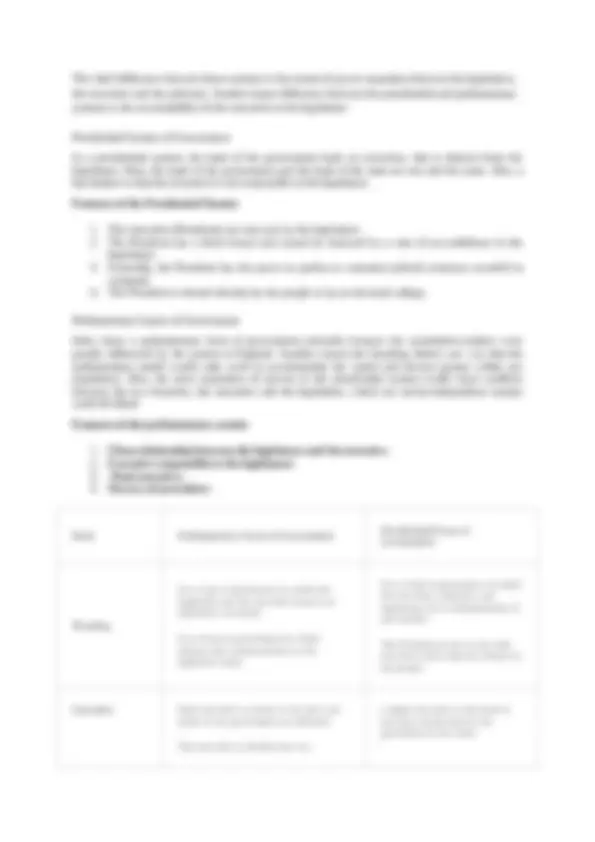




Study with the several resources on Docsity

Earn points by helping other students or get them with a premium plan


Prepare for your exams
Study with the several resources on Docsity

Earn points to download
Earn points by helping other students or get them with a premium plan
Community
Ask the community for help and clear up your study doubts
Discover the best universities in your country according to Docsity users
Free resources
Download our free guides on studying techniques, anxiety management strategies, and thesis advice from Docsity tutors
democracy and its types parliamentary form presidential form
Typology: Cheat Sheet
1 / 4

This page cannot be seen from the preview
Don't miss anything!




On special offer
Of all the definitions of democracy perhaps the best and most popular definition is the following: It is called “the government of the people, by the people and for the people”. Essential Elements of Democracy
components under parliamentary government: the Head of State (President) and the Head of Government (Prime Minister). The President is the head of the Presidential form of government. Ministers Belong to the ruling party and are Members of Parliament. Generally, no outsider is allowed to become a minister. Can be chosen from outside the legislature, and are usually industry experts. Accountability Executive accountable to Legislature. The parliamentary system of government is one in which the legislative and executive bodies work in tandem, but the judiciary branch operates independently. Executive not accountable to Legislature. With contrast, in a presidential form of government, the three branches of government operate independently of one another. Dissolution of the lower house The Prime Minister is able to dissolve the lower house. The President cannot dissolve the lower house. Tenure Prime Minister’s tenure depends upon majority support in the Parliament. Thus, it is not fixed. Fixed tenure for President. Separation of Powers No clear-cut separation of power. The principle of Separation of powers is strictly followed. Party Discipline Stronger party discipline Party discipline is comparatively less Autocracy Less autocratic More autocratic. Examples India and The United Kingdom Costa Rica and the United States